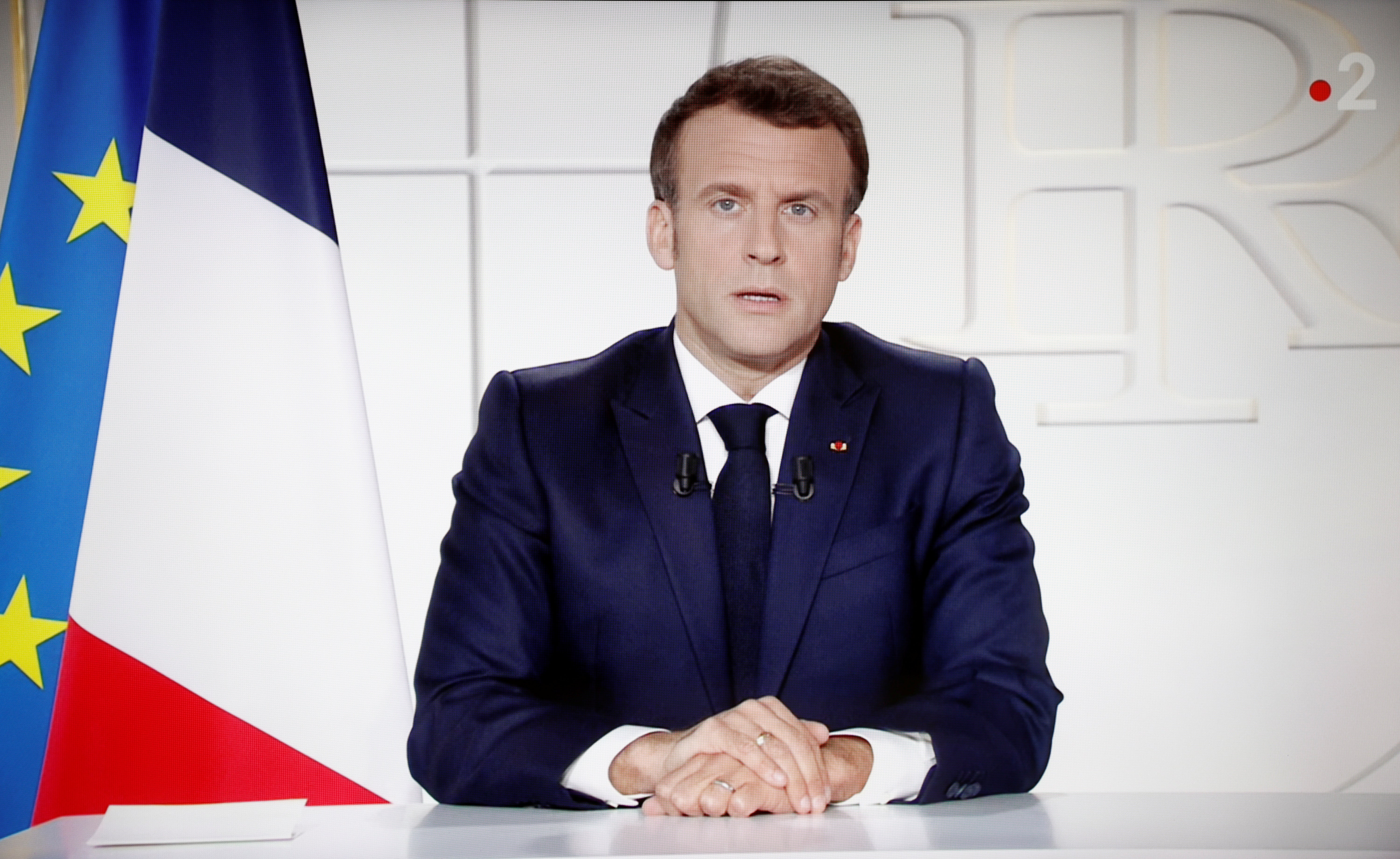France tightens lockdown as Covid cases surge
Nationwide measures to be introduced from this weekend, Macron says

Your support helps us to tell the story
From reproductive rights to climate change to Big Tech, The Independent is on the ground when the story is developing. Whether it's investigating the financials of Elon Musk's pro-Trump PAC or producing our latest documentary, 'The A Word', which shines a light on the American women fighting for reproductive rights, we know how important it is to parse out the facts from the messaging.
At such a critical moment in US history, we need reporters on the ground. Your donation allows us to keep sending journalists to speak to both sides of the story.
The Independent is trusted by Americans across the entire political spectrum. And unlike many other quality news outlets, we choose not to lock Americans out of our reporting and analysis with paywalls. We believe quality journalism should be available to everyone, paid for by those who can afford it.
Your support makes all the difference.Emmanuel Macron has ordered France into its third national lockdown in response to a surge of Covid-19 cases in the country.
In a televised address on Wednesday evening, the French president said confinement measures that were already in place in Paris and 19 other departments would be extended nationwide for four weeks from Saturday.
“We must make an additional effort,” he said. “No region is safe from this virus. Everyone should limit their contacts with other people.”
These measures include a 7pm curfew, a 10 km (6.2 miles) travel restriction and the closure of all non-essential shops. In addition, schools and nurseries will be closed for three weeks from 12 April.
France has one of the highest infection rates in Europe – more than seven times that of the UK – and is in the middle of a third major wave that threatens to be the worst yet.
Read more:
The French president had sought to avoid a third large-scale lockdown since the start of the year, gambling that if he could steer France out of the pandemic without locking the country down again he would give the economy a chance to recover from a deep slump.
But the former investment banker’s options have narrowed as more contagious strains of the coronavirus sweep across France and much of Europe.
The new measures will force the closure of 150,000 businesses at a cost of €11bn (£9.36bn) per month, the finance ministry said.
Daily new infections have tripled since early February to nearly 60,000, according to the latest figures. France’s Health Ministry on Wednesday reported 59,038 new coronavirus cases. The country has so far reported more than 4.6 million cases of coronavirus and 95,495 Covid-related deaths.
On Tuesday, the number of Covid-19 patients in intensive care breached 5,000, exceeding the peak hit during a six-week-long lockdown in the autumn. Thousands of school classes have been closed.
“We must not resort to panic,” Mr Macron said. “We have not lost control.”
Parliament will vote on Thursday on the measures announced by the president. “That tells you steps will be taken on a national level,” a government source said.
A nationwide nightly curfew has been in place since December and restaurants, bars and cinemas have been closed for months. Ten days ago, the government shut non-essential stores and limited people’s movements in Paris and other regions ravaged by the virus.
Schools have been kept open since the first lockdown ended, but Paris mayor Anne Hidalgo said it was time to close them, with the virus spreading through classrooms.
Mr Macron had hoped France’s Covid-19 vaccine campaign would reduce the numbers falling gravely ill. But the vaccine rollout is only now finding its stride three months in, with just 12 per cent of the population having received at least one vaccination dose. This compares to more than 45 per cent in the UK.
Additional reporting from agencies.
Join our commenting forum
Join thought-provoking conversations, follow other Independent readers and see their replies
Comments